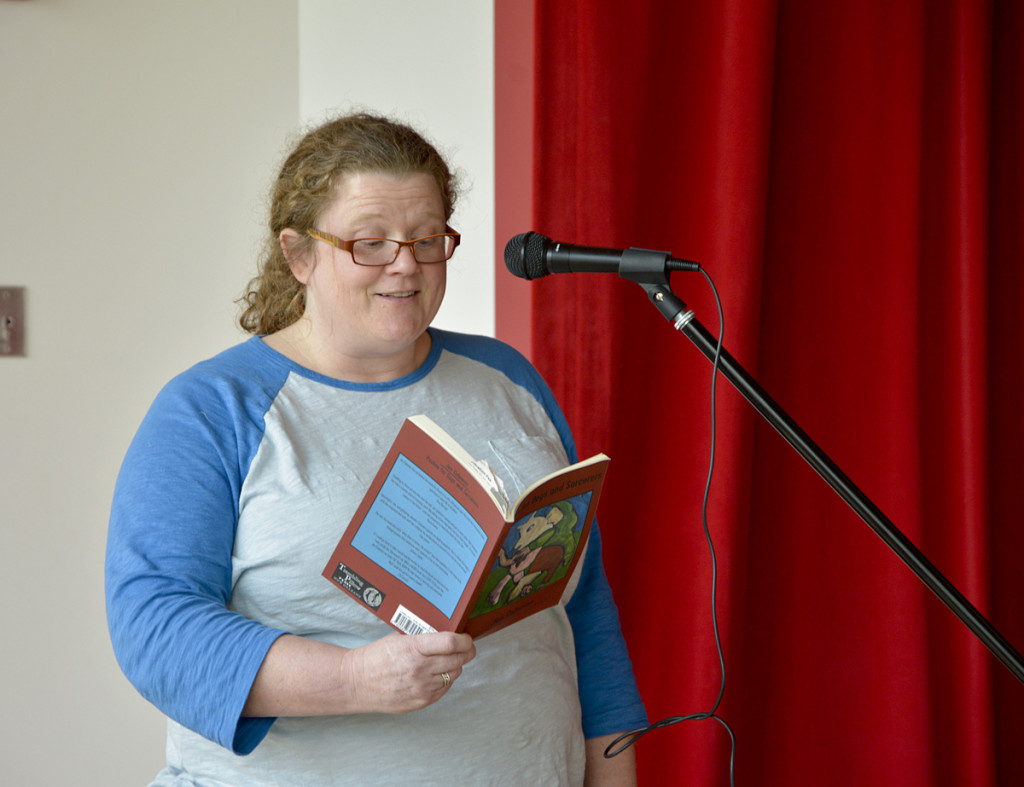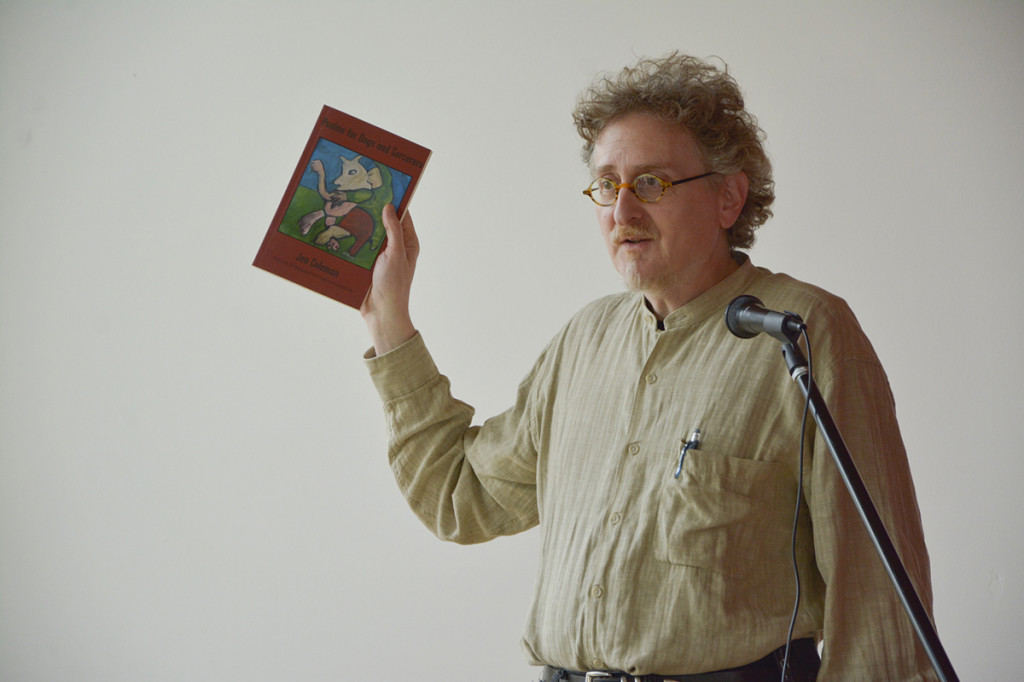Seattle might have seemed strange last week when the Association of Writers and Writing Programs came to town.
Instead of the traditional bar talk one might expect from a Thursday or Saturday night—of financial woes, crumbling relationships, and sports perspectives—Seattleites heard a long-unpublished author trying desperately to seduce the young publisher sitting warily next to him; or an abundance of talk about character arcs, agent fees, and, beneath it all, the tired chatter of people invested in an industry rapidly outpacing them.
The writers had come out to play.

Jen Coleman, a poet based in Portland, reads from her new book at the AWP event.
The AWP is the largest writing organization in the United States. The organization was created in 1967 by 15 writers, in response to academia’s entrenched attitude toward English literature. At the time, departments were largely opposed to MFA programs and the AWP was founded as a way to provide greater publishing opportunities for writers around the country.
This dedication to the synthesis of education and creation continues today. According to the organization’s website, the AWP now delivers resources to “over 50,000 writers, 500 college and university creative writing programs, and 125 writers’ conferences and centers.”
In essence: it’s a pretty big deal.
This organization’s popularity was in full display at this year’s conference. The Washington State Convention center—a massive, sprawling complex—was filled with writers of all kinds from Thursday to Saturday.
Older, bedraggled-looking veterans in faded tweed scanned rows of literary magazines next to their young, denim-clad compatriots; Young Adult Fiction authors swapped stories with writers of supernatural political fiction; and small presses pushed their wares next to industry giants like The Paris Review.
Among all of them, however, there was an atmosphere of communal excitement that is often absent in the writing life. This isn’t surprising, as there aren’t usually over 13,000 writers together in one place.
Attendee Ben Agre travelled from Illinois to attend the conference. Coming to the conference gave him a chance to connect with other authors and, if he was lucky, do a bit
of networking.
“Writing is often viewed as a very solitary pursuit,” he said. “And, of course, that’s true. But it’s also really nice to be able to be around so many other people who care about the same thing that you do. It produces a lot of hope.”
Dr. Susan Meyers, a creative writing professor at Seattle University, felt similarly.
“The AWP is a terrific place to connect with people—new friends, colleagues and old—in order to swap ideas about teaching and publishing,” she said. “ I always appreciate the way in which I learn new things to try in the classroom, expand my repertoire of publishing venues and promotional ideas, and strike up conversations with people about future projects to collaborate on.”
The conference saw an abundance of well-known writers, from local legend Sherman Alexie to Amy Tan, David Guterson and Ursula K. LeGuin.
Annie Proulx, the keynote speaker, perhaps best epitomized the conference’s overarching feeling. Proulx is a Pulitzer Prize winning author, is perhaps most famous among the non-literary public for writing the short story “Brokeback Mountain.”
In her speech at the end of Thursday night, she made numerous allusions to a recent article by George Packet in The New Yorker about Amazon’s attempts to corner the publishing industry. She also spoke about the history of literature itself. Despite the beauty of her speech, Proulx was honest about how the number of writers has begun to outpace those who read.
“The balance of writers to readers is changing,” Proulx said. “The numbers of readers is dwindling, and the amount of writers has increased violently.”
Yet, this year’s AWP also marks Seattle’ own growing importance in the writing world. Meyers said that hosting the AWP represents a hallmark for Seattle and its literary scene, which has been growing steadily through the last decade.
“The fact that AWP came to Seattle signals national recognition of Seattle as an important literary city, in league with Chicago, New York, Los Angeles and other such cities that often host the conference,” she said. “For individual Seattle writers, access to AWP in our home city means the opportunity both to access a huge network of national literary contacts—from headliner authors to industry leaders in publishing and promotion, and to highlight local literary venues.”














AT
Mar 7, 2014 at 9:00 am
Hi,
thanks for this great summary of the conference. As an attendee, I found your write-up very accurate and informative. I was thrilled by this opportunity to discover Seattle, which did not disappoint. Can’t wait to come back!
Nitpicking: the name of the New Yorker author Proulx referred to is George Packer not Packet – I mention it because he is a legend for many of us so people who read your article may recognize the misspelling. (Feel free to delete the beginning of this paragraph after you correct Packer’s name.) Here is a link to the article about Amazon: http://www.newyorker.com/reporting/2014/02/17/140217fa_fact_packer?currentPage=all
Keep up the good work,
AT